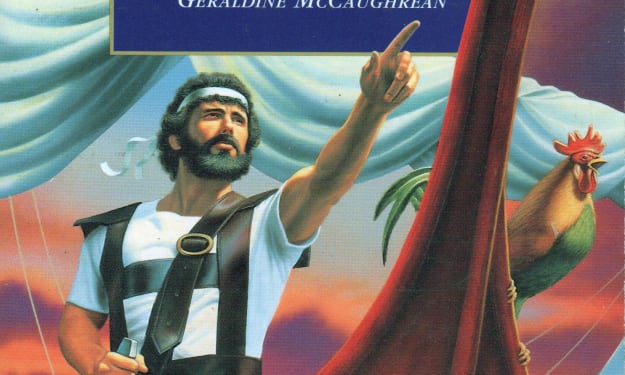Book Review: "Brave New World" by Aldous Huxley
A Provocative Vision of a Dystopian Future

"Brave New World" by Aldous Huxley is a thought-provoking and chilling vision of a dystopian society set in a not-so-distant future. Published in 1932, Huxley's novel remains a significant work in the science fiction genre and a timeless exploration of the consequences of unchecked technological advancements and societal control. With its disturbing portrayal of a world governed by pleasure, conformity, and the eradication of individuality, "Brave New World" challenges readers to contemplate the price of progress and the true meaning of humanity.
A Futuristic Dystopia
Set in the year 2540 AD, "Brave New World" presents a world where scientific and technological advancements have triumphed over the complexities of human nature and individuality. The World State, the governing entity, employs scientific methods to control every aspect of its citizens' lives, ensuring conformity and stability. In this society, people are engineered through artificial reproduction and conditioning to fit predefined roles, each conditioned to enjoy their social status and embrace a life free of discomfort and suffering.
The novel introduces readers to Bernard Marx, an Alpha-Plus individual who feels alienated from the society that claims to have perfected happiness. As he navigates the disconcerting world of consumerism and pleasure-seeking, he embarks on a journey of self-discovery that exposes the shallow foundation of this seemingly utopian society.
The Loss of Individuality
One of the central themes of "Brave New World" is the loss of individuality in the pursuit of societal stability. The citizens of the World State are conditioned from birth to conform to their predetermined roles, suppressing any unique desires or ambitions. Huxley's portrayal of a society devoid of authentic emotions and intellectual curiosity raises unsettling questions about the true cost of eradicating individuality in the name of order and happiness.
The Consequences of Consumerism and Pleasure
In this brave new world, consumerism and instant gratification have become the ultimate goals. The society thrives on perpetual pleasure, with a readily available drug called "soma" used to numb any feelings of discontent or emotional unrest. As the citizens indulge in superficial pleasures, they are rendered passive and complacent, effectively sacrificing their freedom and individuality for the sake of stability.
Huxley's critique of consumer culture and the potential consequences of prioritizing pleasure over genuine human connection and growth remains remarkably relevant, offering readers a sobering reflection on modern society's values and priorities.
The Role of Technology and Science
"Brave New World" raises concerns about the unchecked use of technology and science in shaping society. While the technological advancements in the novel have created a seemingly efficient and contented society, they have also stripped away the essence of human experience and emotion. Huxley's warning about the potential dangers of losing touch with our humanity in the face of scientific progress echoes throughout the pages of this thought-provoking novel.
The Clash of Ideals
As the story unfolds, "Brave New World" presents a clash of ideals between Bernard Marx and John "the Savage," a man raised outside the World State's controlled society. John's introduction to the brave new world becomes a pivotal moment that forces readers to confront the fundamental questions of what it truly means to be human. The clash between the values of individuality, emotion, and freedom represented by John and the soulless, controlled perfection of the World State's society encapsulates the core conflict of the novel.
Conclusion
"Brave New World" by Aldous Huxley is a powerful and disquieting work of speculative fiction that continues to resonate with readers today. Through its exploration of themes such as loss of individuality, the consequences of consumerism and pleasure-seeking, and the role of technology and science in society, the novel serves as a stark warning about the potential perils of an overly controlled and dehumanized future.
As we delve into Huxley's dystopian vision, we are challenged to reflect on our own society's values and the choices we make in the pursuit of progress. "Brave New World" stands as a timeless and cautionary tale, reminding us to safeguard the essence of our humanity amid the relentless march of technological advancement and societal control.
About the Creator
Kristopher Abralitovich
Aspiring wordsmith and book enthusiast. Crafting stories that stir hearts and sharing my love for literature through insightful book reviews. Let's explore the magic of storytelling together! 📚✍️
Enjoyed the story? Support the Creator.
Subscribe for free to receive all their stories in your feed. You could also pledge your support or give them a one-off tip, letting them know you appreciate their work.






Comments
There are no comments for this story
Be the first to respond and start the conversation.